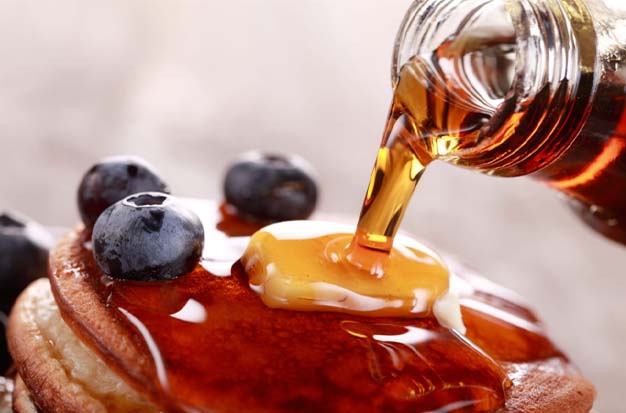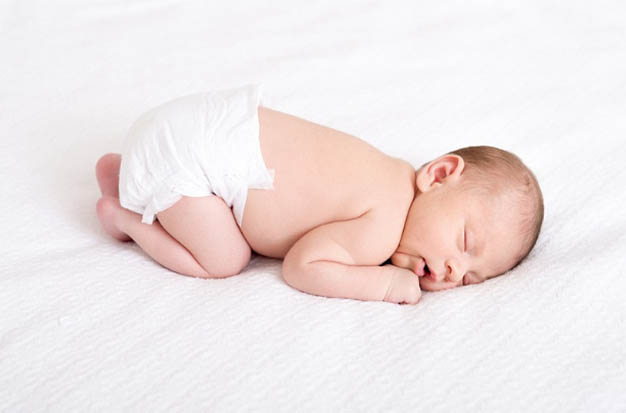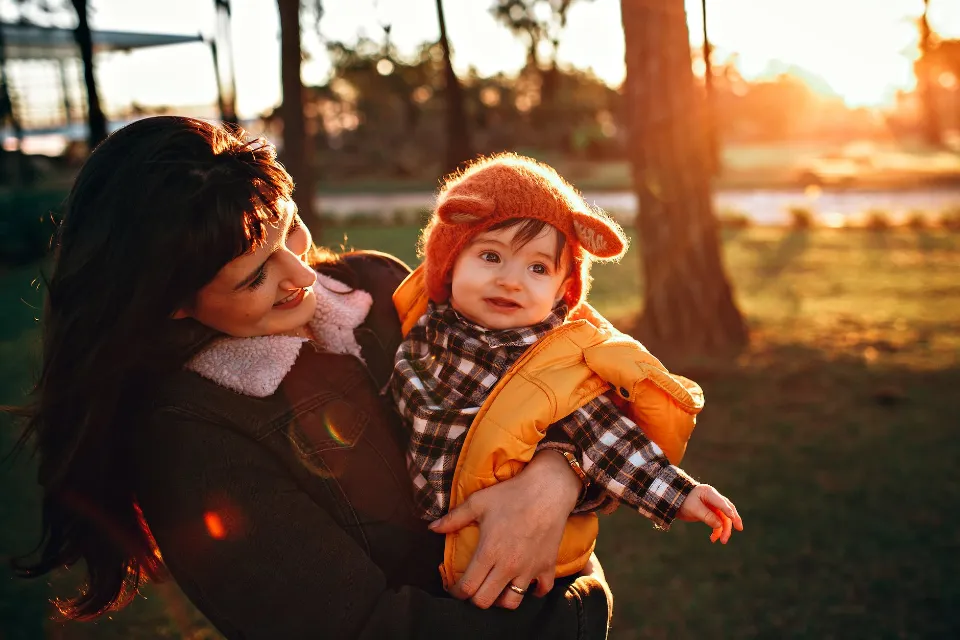It’s not exactly safe from the start because, aside from baby formula and breast milk, your child shouldn’t be consuming anything solid, much less anything sweet, for the first 4-6 months of life.
That’s the best-case scenario, but I opted to introduce sugary foods to my babies’ diets along with other solid foods only after their first birthdays, and even then, in moderation.
Do Babies Benefit From Maple Syrup?
Although maple syrup is a natural sweetener, it contains free sugars, which can lead to tooth decay as soon as your baby’s teeth begin to erupt.
Food with a high sugar content can also make your baby feel full more quickly, which, according to the NHS, will mean that they are less likely to fill up on more healthy food, which may cause them to miss out on some essential nutrients.
So that they are more likely to eat a varied and healthy diet as they get older, you should concentrate on exposing your baby to as many different tastes and textures as possible when they are first getting used to solids.
Unfortunately, maple syrup is mostly sugar, and when given to babies and young children, it can limit the variety of foods they are interested in eating. Additionally, consuming too much sugar can increase the risk of obesity and type 2 diabetes and have a negative impact on cardiovascular health.
Sugar is sugar, even though maple syrup has more nutrients than refined sugar (it provides some calcium and vitamin B2). Fresh fruit, like bananas, figs, and strawberries, which also contains fiber, is preferable if you want to sweeten baby food.
Botulism Can Be Triggered By Maple Syrup.
Infant botulism, a neurological condition caused by toxins made by Clostridia botulinum spores and often associated with honey, is not a known common risk in maple syrup. Infant botulism is distinct from foodborne botulism, which occurs when foods are contaminated with the botulism toxin from improperly home-canned foods. Infant botulism is brought on when infants swallow spores before their gut microbiome has matured enough to protect them from infection. Everyone is at risk for foodborne botulism. Because maple syrup is highly concentrated (with little water content) and very high in sugar, the syrup offers an unfavorable environment for the growth of C. botulinum spores. On the other hand, raw maple sap does pose a risk for botulism due to its low sugar content, lower concentration, and lower acidity, which are favorable environments for the growth of these toxins. Never give a baby raw maple sap.
Are Allergies To Maple Syrup Common?
No, maple syrup is not a common allergen, but some people with Oral Allergy Syndrome (also known as pollen-food allergy syndrome) have experienced reactions to raw, unprocessed maple sap but not to the cooked final maple syrup.12 A dangerous reaction is unlikely to result from oral allergy syndrome, which typically causes momentary mouth itching or burning.
For the first few servings, start by providing a small amount of maple syrup, just as you would when introducing any new food. Increase the amount gradually over subsequent meals if there is no negative reaction while monitoring your overall sugar intake.
Is Maple Syrup Safe For Babies?
Honey is more dangerous than maple syrup. Maple syrup is free of botulinum spores, which frequently contaminate honey because it is made directly from the sap of the maple tree. Additionally, heated syrup that has been collected from trees is concentrated to remove any remaining water. This process eliminates all spore growth opportunities, lowering the risk of infant botulism.
Experts don’t recommend introducing maple syrup to infants until a particular age. It is advised to introduce natural sugars, such as honey, after the child turns one year old. As a result, you can apply the same principle to maple syrup as well. Since the sap is less sweet after collection, this is the reason. However, the syrup becomes sweeter during processing and has nearly the same number of calories as white or refined sugar. The consumption of too many calories may result if you give maple syrup to babies.
Is Maple Syrup In Any Way Beneficial?

Minerals, antioxidants, and phytohormones in trace amounts are present in maple syrup and may have some long-term health advantages. For instance, a current animal study highlighted maple syrup’s hepatoprotective properties. Another investigation found that maple syrup contains polyphenols like ginsenosides A-C, which have been shown to protect against cancer. According to a study, maple syrup has antioxidant properties that can prevent free radical damage and advance general health.
How Is Syrup Graded?
The grade of maple syrup is intriguing but not particularly complicated. You can find both dark and lighter varieties of maple syrup; the former has a stronger flavor while the latter has a milder one.
Babies enjoy sweet and savory foods, but it might be best to choose a less concentrated, lighter maple syrup the first time you give it to your child.
Sweetness and delicateness can vary among Grade A syrups. The darker maple syrup is harvested later in the season than the lighter-colored syrup, giving it more time to ripen in the sunshine and warm weather.
When Is Maple Syrup Safe For Infants To Eat?
Babies shouldn’t be eating or drinking anything solid from birth until they are between four and six months old. In actuality, infants don’t even require water until they are at least six months old. Babies should only consume breastmilk or formula from birth until they are at least four months old because they do not yet have the digestive capacity to handle solid foods.
It’s possible for a baby to start eating solid foods once they reach the age of four months. However, some pediatricians advise delaying until the child is at least six months old.
There are some indications that your infant may be ready to begin solids, such as when they can hold their head steady without much support and when they start to reach for your food as you eat. If you’re unsure if your child is ready to begin solids due to concerns about their personal health, it’s important to consult their pediatrician.
Conclusion
Until they are at least a year old, infants shouldn’t likely be given maple syrup. Once they reach the age of one year, their bodies can process sugar more effectively, making syrup and honey less of an issue. The first year of a child’s life lays the groundwork for what they will eat over the following few years, though there is nothing wrong with letting them indulge in something sweet every now and then.
When your child is ready for solids, you shouldn’t give them to them on their own; instead, you should mix them into a dish like pancakes and treat the mixture first and foremost as pancake syrup. However, make sure to first break the pancakes into small pieces so your child can eat it like a finger food.



